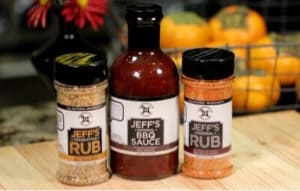Well I went to find this information and it was damn near impossible to locate.
The USDA web page for this information is busted BUT I was able to find the same content as a PDF document located at the following,
A Google search on the term "USDA game to farm table PDF" should return it as the top result for you.
USDA Wild Game Internal Temp documentation here: https://s3.amazonaws.com/assets.cce.../19032/Game_from_Farm_to_Table.pdf?1481131140
The following quote is taken directly from page 8 of the document:
Finally, I am not sure of the content has been updated but the last page of the document states that the document was last revised in May 2011.
I hope this helps!
The USDA web page for this information is busted BUT I was able to find the same content as a PDF document located at the following,
A Google search on the term "USDA game to farm table PDF" should return it as the top result for you.
USDA Wild Game Internal Temp documentation here: https://s3.amazonaws.com/assets.cce.../19032/Game_from_Farm_to_Table.pdf?1481131140
The following quote is taken directly from page 8 of the document:
Also, I was not able to find a definitive post with this information so I am making this post :)APPROXIMATE GAME COOKING TIMESWhole game birds are safe cooked to a minimum internal temperature of 165°F as measured with a food thermometer.
Check the internal temperature in the innermost part of the thigh and wing and the thickest part of the breast. For reasons
of personal preference, consumers may choose to cook poultry to higher temperatures.
Ground meats and other cuts of game meat should reach 160°F. Approximate cooking times for use in meal planning are given on the chart below....
Finally, I am not sure of the content has been updated but the last page of the document states that the document was last revised in May 2011.
I hope this helps!
Last edited:




